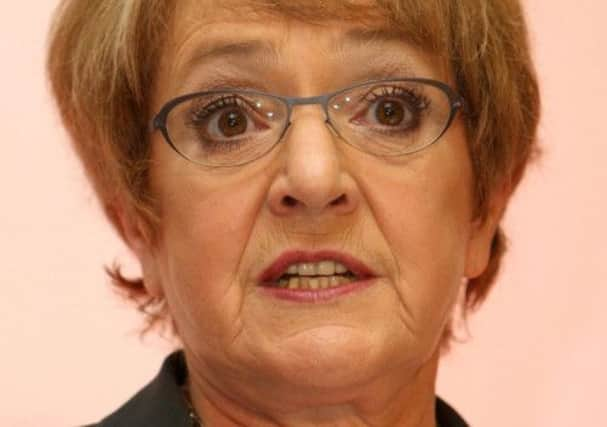Internet revolution to bypass 40,000 homes


Industry leaders appearing before the Commons public accounts committee (PAC) yesterday compared the Government’s broadband delivery strategy to Dr Beeching’s brutal cuts to the railway network in the 1960s, abandoning the most rural areas where the connectivity is needed most.
Committee chairwoman Margaret Hodge tore into the Government for allowing technology giant BT to monopolise the process of rolling out high-speed internet to the most rural parts of Britain.
“It is an outrage,” she said.
Advertisement
Hide AdAdvertisement
Hide AdIn total, the Government is spending more than £500m rolling out high-speed internet to rural areas via its broadband delivery quango, BDUK. But despite a supposedly competitive bidding process, every contract so far has been awarded to BT.
North Yorkshire was chosen as one of BDUK’s pilot areas and has been hailed as an exemplar of the project, with 90 per cent of homes and businesses to be connected by the end of next year.
However, that still leaves some 40,000 homes unable to access the new network, and local MPs were forced to write to Chancellor George Osborne last week requesting further money to reach more parts of the county.
Speaking before the PAC yesterday, one internet firm revealed it had been part of a consortium which could have delivered superfast broadband to 100 per cent of the homes and business in North Yorkshire – but that Government officials “moved the goalposts” so that bidders did not have to reach the most rural properties.
Advertisement
Hide AdAdvertisement
Hide AdThe chief executive of UK Broadband Ltd, Nicholas James, said this had given BT a competitive advantage.
“BDUK changed the goalposts as we went along,” Mr James told MPs.
“So when we bid for North Yorkshire, we had to plan to deliver access to the whole county. The whole 100 per cent.
“When it was agreed (by BDUK)) that that could be reduced, it meant we couldn’t be as competitive.”
Advertisement
Hide AdAdvertisement
Hide AdDavid Cullen, who oversaw the bidding process on behalf of North Yorkshire County Council, said it was “absolutely” the case that he believed the rival bid had been “superior”.
Mr James added that many properties in North Yorkshire promised superfast broadband will actually not see any improvement in internet speed, as the technology deployed by BT means people must live within a mile of their local telephone cabinet to receive any real benefit.
“In effect, BT are going to get paid as though they have connected people when they haven’t,” Mr James said. “Our North Yorkshire bid would have connected every house.”
Mr James told the committee the end result for rural areas was similar to the Beeching cuts.
Advertisement
Hide AdAdvertisement
Hide Ad“Dr Beeching was accused of running the trains at times people didn’t want to catch them so he could close the lines,” he said.
“I would apply that absolutely to BDUK. They started off with good intentions – let’s do 100 per cent (of properties), let’s get good value for money. I believe they were influenced by a number of people and slowly took the goalposts down. It has to be BT.
“It’s the fault of officials that allowed themselves to be lobbied.”
The claims were denied by Sir Jonathan Stephens, the permanent secretary at the Department for Culture, Media and Sport, who insisted it was “never the plan” to try to ensure 100 per cent coverage through the new network, and that the Government approach had ensured the “lowest cost and lowest risk” to the taxpayer.